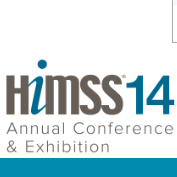Last year, we summarized several key areas of innovation and consolidation that were front-and-center at the HIMSS 2013 Conference in New Orleans. As this year’s conference enters its last couple days in Orlando, we wanted to revisit some of these key themes and the corresponding activity that took place in these sectors over the past year.
Last year, we summarized several key areas of innovation and consolidation that were front-and-center at the HIMSS 2013 Conference in New Orleans. As this year’s conference enters its last couple days in Orlando, we wanted to revisit some of these key themes and the corresponding activity that took place in these sectors over the past year.
- Population Health Management and Analytics: There are many initiatives underway which involve healthcare providers taking on risk in various forms and as mentioned in our recent post on Provider-Based Population Health Management, a key component of providers’ financial upside under these arrangements will be their ability to implement effective population health management programs in order to manage their highest cost patients.
- Vendors such as MedHOK and ZeOmega have emerged as early leaders in provider-directed efforts to manage patient populations in a risk-bearing environment. Key to their offering has been the ability to harness clinical data and other relevant information in order to establish actionable tools and solutions to guide providers in managing their patient populations.
- Accountable Care Solutions: A common discussion item at HIMSS 2013 was the role of population health management in an ACO environment. Vendors such as Cerecons (a subsidiary of MEDecision) and other traditional payer-focused care management solutions were being mentioned in ACO discussions for their ability to stratify patient populations, identify care gaps and align care management workflows around high-risk patient populations.
- ACOs require more than population health management alone, such as connectivity solutions that streamline the exchange of information, decision support tools that drive care decisions, communication tools to facilitate provider-patient communication as well as other outsourced solutions that streamline important administrative processes. The recent Optum-Dignity Health partnership, Optum360, is indicative of the types of solutions that have emerged to support the large-scale needs of health systems and enable ACO (or similar) models of care delivery.
- Revenue Cycle Management: Revenue cycle efficiency remains an area of heightened importance post-reform given the continued challenges placed on hospitals and provider groups to management reimbursement pressure, new contracting models and increased payment complexity.
- The latest example of the continued evolution in revenue cycle management is Experian’s recent acquisition of Passport Health. The acquisition of Passport allows Experian to shift from their historical focus on delivering content and analyticssolutions to hospitals and physician groups towards an end-to-end solution across the provider revenue cycle that encompasses scheduling, claim processing, payment posting, receivables management and patient engagement. The acquisition of Passport, and the entry into a broader suite of RCM capabilities, meaningfully changes the competitive landscape for Experian and the RCM industry.
- Challenges associated with bad debt and self-pay payment collections continue to drive interesting discussions with providers and vendors. TripleTree continues to monitor innovations focused on managing patient financial responsibility. Several interesting approaches, such as CarePayment and ClearBalance, deliver proactive and targeted solutions to support patients as in managing financial responsibility as well as the billing process.
- Patient Engagement and Marketing: TripleTree continues to invest time advising companies that facilitate patient engagement and support consumer decision making. In a post-reform environment where measuring patient satisfaction and care outcomes are commonplace, keeping patients healthy outside the facility walls while also keeping them happy with the level of engagement they experience with their physicians will be extremely important. At the same time, we view similar patient engagement solutions such as those with connected health delivery models like BrightWhistle, that drive patient volumes towards facilities as having high strategic value to provider groups, health system and ACOs in today’s market environment and going forward.
- Two recent acquisitions highlight the growing demand for solutions that help manage and assess patient engagement. MEDSEEK, a software provider focused on supporting provider efforts to influence and direct patient behavior, acquired care management vendor SymphonyCare. The combination creates an integrated approach for hospitals to influence patient engagement as well as manage patient populations. Similar, WebMD recently acquired patient engagement vendor Avado; creating an entry point for them to leverage their existing provider relationships and play a greater role in physician-patient communications and patient engagement.
Please look for a full review of the conference later this week. Several members of the TripleTree team will be active participants at HIMSS in Orlando this week. If you are attending HIMSS 2014 and would like to compare notes during or following the conference, let us know.

